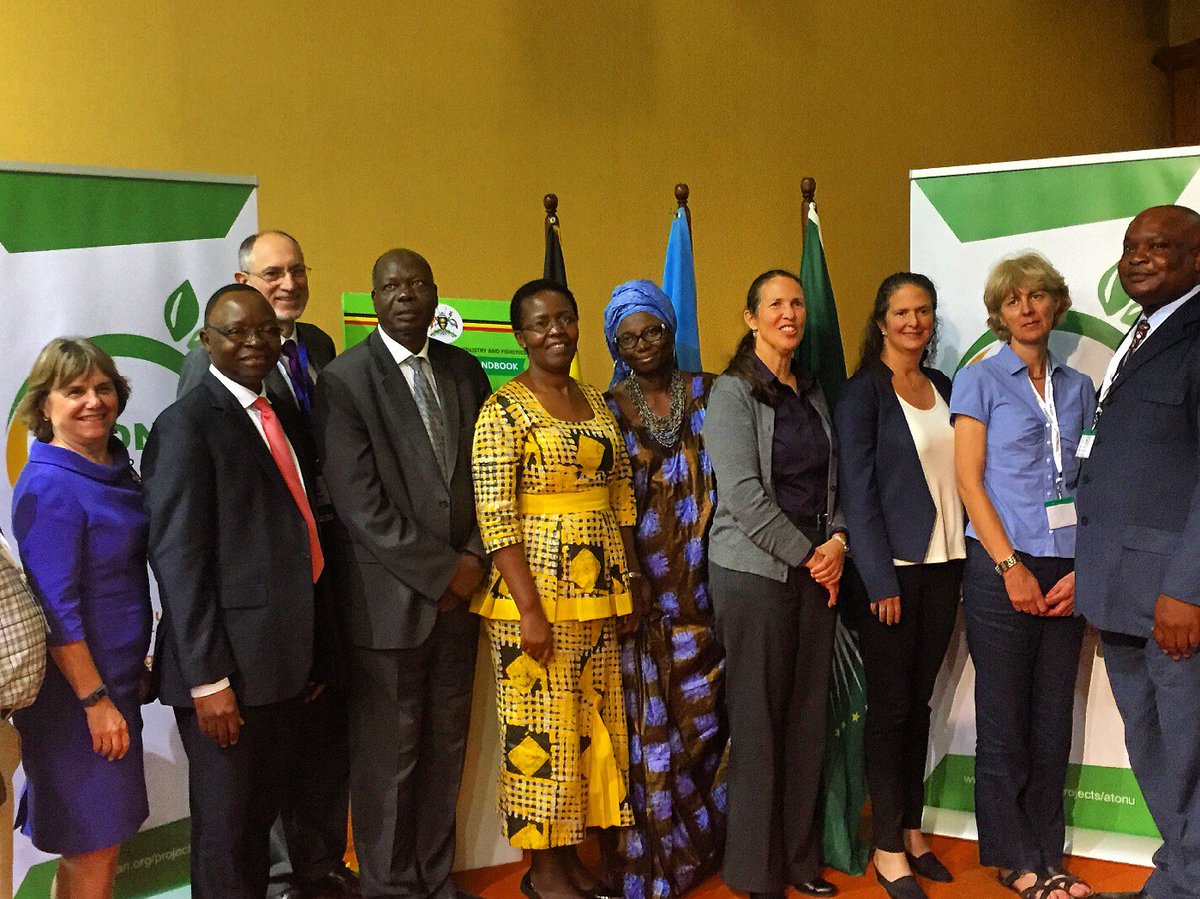28-30 October 2015. Kampala. The Africa Day for Food and Nutrition Security (ADFNS) was commemorated on the continent of Africa with continental level celebrations held in Uganda.
The 6th ADFNS gave a special focus to women under the theme “Empowering Our Women, Securing Our Food, Improving Our Nutrition”, in line with the declaration by the African Union of 2015 as the “Year of Women Empowerment and Development towards Africa’s Agenda 2063”.
Building on the selected theme, the following four sub-themes represented the areas of technical and policy discussions:
28 October 2015. Launch of the Agriculture to Nutrition Initiative - ATONU
Led by the South Africa-based Food, Agriculture and Natural Resources Policy Analysis Network (FANRPAN), the regional initiative ATONU answers the question of what agriculture programs can do to achieve positive nutrition outcomes.
 FANRPAN has assembled a leading global consortium of African and international organizations to design, pilot, rigorously evaluate and promote a range of interventions that will improve nutritional outcomes of agricultural programs and policies. The interventions address the variety of social, cultural and environmental contexts found in African agriculture.
FANRPAN has assembled a leading global consortium of African and international organizations to design, pilot, rigorously evaluate and promote a range of interventions that will improve nutritional outcomes of agricultural programs and policies. The interventions address the variety of social, cultural and environmental contexts found in African agriculture.
Objectives
The ATONU project provides technical assistance to integrate tailored nutrition interventions into planned and ongoing agricultural investments through:
The 6th ADFNS gave a special focus to women under the theme “Empowering Our Women, Securing Our Food, Improving Our Nutrition”, in line with the declaration by the African Union of 2015 as the “Year of Women Empowerment and Development towards Africa’s Agenda 2063”.
Building on the selected theme, the following four sub-themes represented the areas of technical and policy discussions:
- Sub-theme 1: Accelerated action toward improved maternal, adolescent and young child nutrition
- Sub-theme 2: Harnessing opportunities for production, access and consumption of nutritious, safe and diverse diets
- Sub-theme 3: Improving and promoting small holder farmers’, particularly women farmers’ capacity to access markets
- Sub-theme 4: Strengthening institutional capacities and systems, partnerships and knowledge sharing for enhanced delivery of food and nutrition security interventions
Related:
28 October 2015. Launch of the Agriculture to Nutrition Initiative - ATONU
Led by the South Africa-based Food, Agriculture and Natural Resources Policy Analysis Network (FANRPAN), the regional initiative ATONU answers the question of what agriculture programs can do to achieve positive nutrition outcomes.
 FANRPAN has assembled a leading global consortium of African and international organizations to design, pilot, rigorously evaluate and promote a range of interventions that will improve nutritional outcomes of agricultural programs and policies. The interventions address the variety of social, cultural and environmental contexts found in African agriculture.
FANRPAN has assembled a leading global consortium of African and international organizations to design, pilot, rigorously evaluate and promote a range of interventions that will improve nutritional outcomes of agricultural programs and policies. The interventions address the variety of social, cultural and environmental contexts found in African agriculture.Objectives
The ATONU project provides technical assistance to integrate tailored nutrition interventions into planned and ongoing agricultural investments through:
- Generating tools and frameworks for diagnosing the opportunities to incorporate tailored nutrition interventions into agriculture investments;
- Offering technical assistance for designing, testing, and rigorously monitoring and evaluating results of the tailored nutrition interventions (proof of concept)
- Documenting best practices and evidence and adding to the agriculture for nutrition knowledge base
- Advocating for evidence-based decision making at all levels
- Strengthening African capacity and building a community of practice in agriculture for improved nutrition.
 |
| James speaking at ATONU about how FarmAfrica is improving nutrition for sesame farmers |


No comments:
Post a Comment